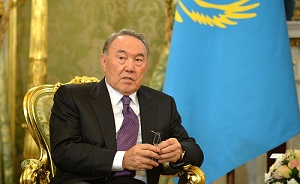New Central Asia But Old Great Game? Ramifications of the Consultative Meeting in Astana
By Farkhod Tolipov
April 10, 2018, the CACI Analyst
On March 15, 2018, the presidents of Kazakhstan, Kyrgyzstan, Tajikistan and Uzbekistan and the speaker of Turkmenistan’s parliament gathered in Kazakhstan’s capital Astana for a long-awaited meeting. Notably, the meeting was five-lateral, not four-lateral like previous meetings, and was consultative. Over 10 years have passed since the latest regional meeting of the Central Asian leaders. Not least for geopolitical reasons, the regional integration process that started in 1991 has since declined. This consultative meeting signaled a possible revitalization of regional cooperation, while the region remains in the shadow of great power politics.
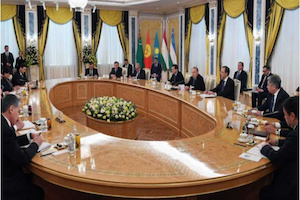
The Reemerging Self-Confidence of Central Asia
By Johan Engvall
March 22, 2018, the CACI Analyst
Something is stirring in Central Asia. The past two weeks have seen a flurry of bilateral and multilateral get-togethers, starting on March 9, when Uzbekistan’s President Shavkat Mirziyoyev arrived with great fanfare in Dushanbe for the first state visit of a president of Uzbekistan to Tajikistan since 2000. Less than a week later, on March 15, the presidents of Kazakhstan, Kyrgyzstan, Tajikistan and Uzbekistan as well as the speaker of Turkmenistan’s parliament gathered in Astana for the first exclusively regional “summit” in almost a decade. What do these meetings, each producing several intriguing bilateral and multilateral agreements and statements, mean for the prospects of Central Asian countries finally embarking upon a path of development through cooperation?
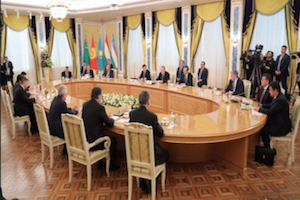
Kyrgyzstan's Election Controversy: Cause for Concern?
By Jacob Zenn
November 9, 2017, the CACI Analyst
On October 16, Kyrgyzstan announced that the winner of the country’s presidential election with 54 percent of the vote was Sooronbay Jeenbekov. The election nonetheless received criticism for the way it was carried out from international organizations such as the Organization for Security and Cooperation in Europe (OSCE). Other commentators have noted that the departing president, Almazbek Atambayev, also invested personal and state resources to support Jeenbekov’s election. Kyrgyzstan’s reputation as the “island of democracy” in Central Asia has suffered a setback. Amid other concerns about jihadist radicalization in the country, Kyrgyzstan will struggle to reclaim its reputation as a democratic model for the region, especially in the eyes of its neighbors.
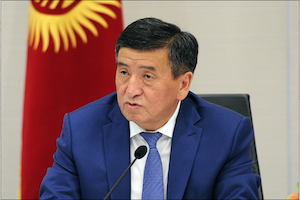
Has the SCO Solved its Expansion Dilemmas?
By Richard Weitz
August 3, 2017, the CACI Analyst
The June Shanghai Cooperation Organization (SCO) summit in Astana marked the SCO’s first membership expansion since its creation in 2001. By finally ending this logjam, the SCO has raised expectations of continued enlargement and increased geopolitical weight. However, major obstacles to further growth persist; meanwhile, more members deepen the mutual tensions and rivalries within the institution.
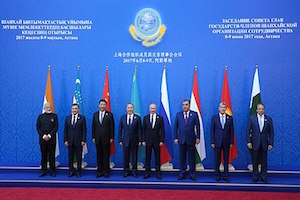
Revere or Reverse? Central Asia between Cyrillic and Latin Alphabets
By Farkhod Tolipov
June 6, 2017, the CACI Analyst
In April this year, Kazakhstan's President Nursultan Nazarbaev made it clear that Kazakhstan intends to change from the Cyrillic to the Latin alphabet. Thereby, this country took a new step in the overall course of its post-Soviet development as an independent state. Kazakhstan became the third state in Central Asia after Uzbekistan and Turkmenistan that decided to undergo such a change. Kyrgyzstan will supposedly be the next country to move in the same direction. The change of alphabets was met with geopolitically saturated aversion in Russian political circles and media, in contrast to the relatively peaceful manner with which it is being introduced in the countries themselves.
